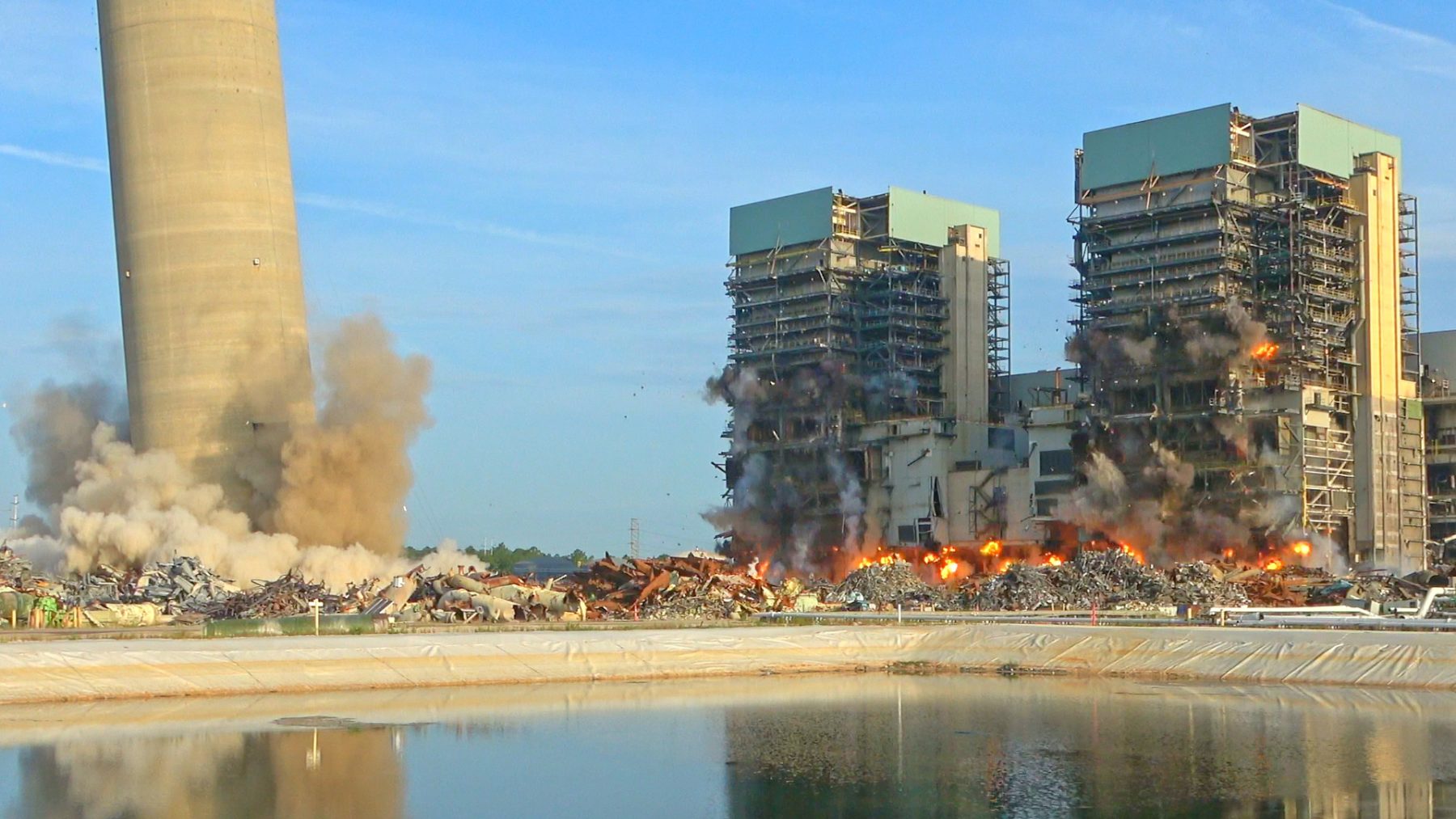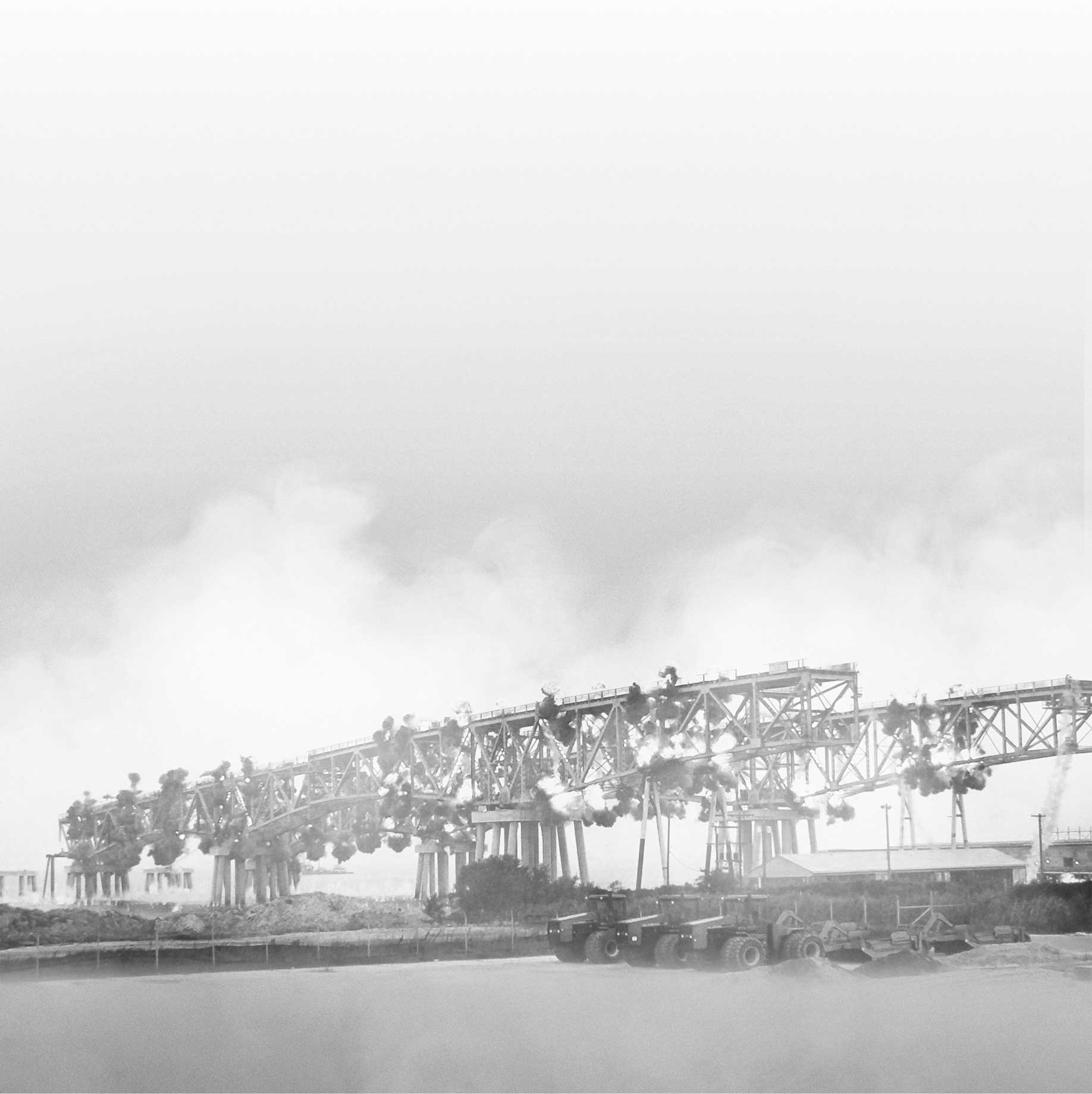JEA St. John’s River Power Park – 3 Phases

Phase #1 
Phase #2 
Phase #3
PROJECT OUTLINE
Along with other power companies striving to reduce their carbon footprint, worldwide, Jacksonville Electric Authority (JEA) and their partner at the St. John’s River Power Park, Florida Power & Light (FPL), decided to shut down its massive power station on the St. John’s River, northeast of Jacksonville, Florida.
The project was awarded to Total Wrecking and Environmental, LLC (Total) and Total used the services of CDI for the design and performance of explosives felling of multiple structure at the site.
PHASE 1
While environmental remediation was being completed in parts of the JEA facility, CDI mobilized to the site to prepare the two (2), 463’ tall, reinforced concrete, hyperbolic cooling towers for explosives demolition. CDI drilled a total of 640 holes into the tower legs to initiate the rotation of the structures toward themselves, and another 3,000 holes in the veils of the structures to ensure their continuity of failure and well-fragmented, post-implosion debris. A total of 1,300 lb of explosives were detonated on June 16, 2018, to bring the structures down exactly per plan.
PHASE 2
Phase 2 of the project called for CDI’s felling of SCR Reactors 1A, 1B, 2A, 2B and Air Heater Units #1 and #2. CDI used a total of 435 lb of conventional and linear shaped charge explosives on multiple levels to initiate the rotation of the units away from the main boilers and lay the structures out, to facilitate secondary demolition by Total’s heavy equipment on site. The second phase shot was successfully performed on April 12, 2019.
PHASE 3
Once debris from Phase 2 was removed, CDI proceeded with Phase 3, which called for the felling of Hung Boiler Units #1 and #2, simultaneously with a 650’ tall, reinforced concrete windscreen having two (2) free-standing internal reinforced concrete flues, 670’ tall.
Total separated the boiler structures from the adjacent turbine hall and prepared the hung boilers per CDI’s design. CDI placed more than 600 pieces of linear shaped charges in the boiler structure, and a total of 600 lb of conventional explosives in the hung boilers, reinforced concrete windscreen and its two (2) reinforced concrete free-standing flues. The implosion took place on July 19, 2019, with the boilers rotating to grade, as planned, and the windscreen falling, full height, to spread out debris for efficient removal by Total’s equipment.
Click HERE to watch the Phase #1 JEA implosion.
Click HERE to watch the Phase #2 JEA implosion.
Click HERE to watch the Phase #3 JEA implosion.


